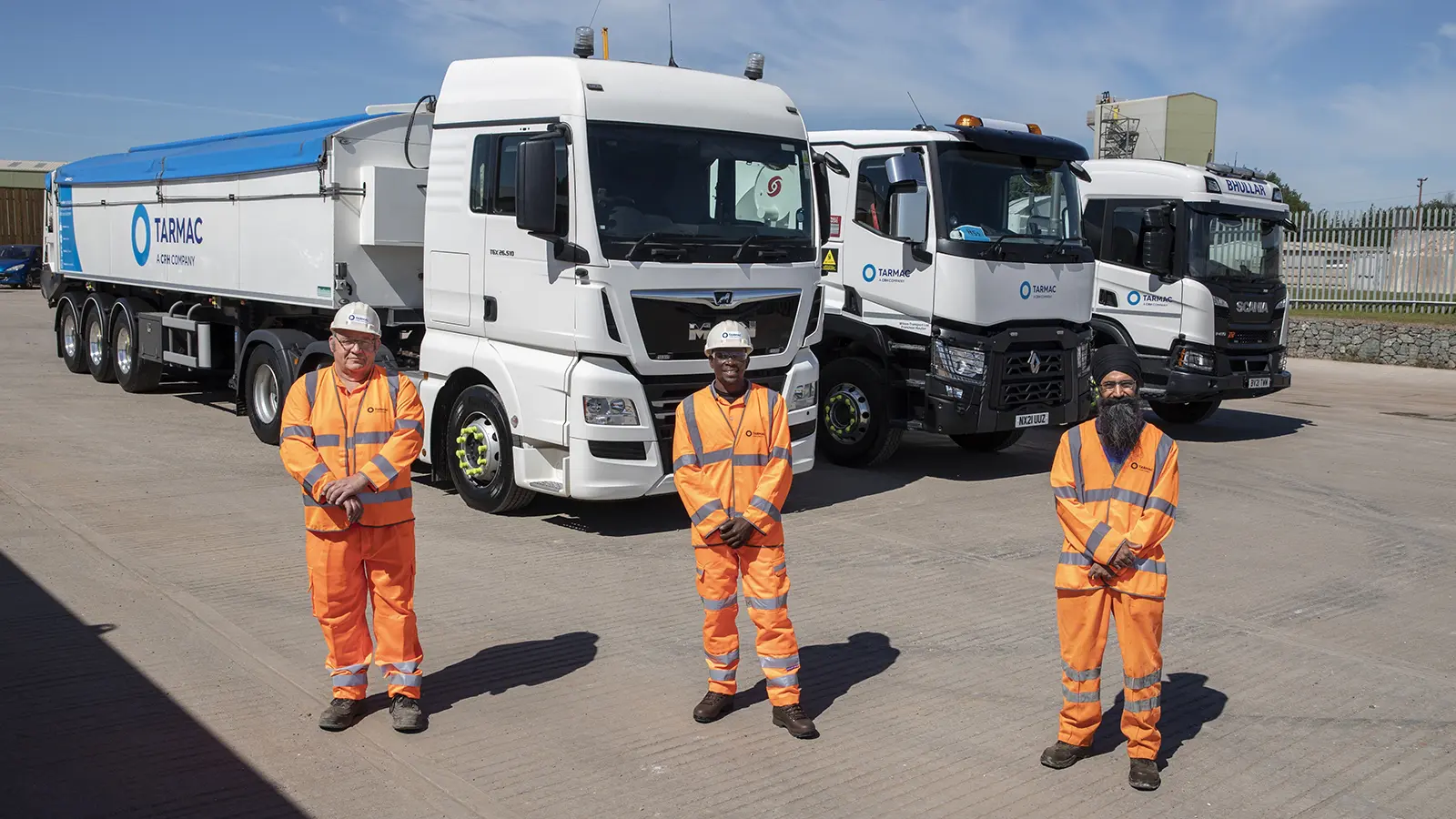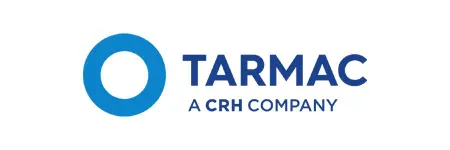

Tarmac is the UK’s leading sustainable building materials and construction solutions business. Transport and Logistics is an essential part of the Tarmac business, from sourcing materials from quarries to production sites to delivering materials to customer construction sites.
Tarmac operates a diverse HGV fleet UK wide, including a combination of tankers, rigid tippers and mixers, and mechanical moving floor articulated trailers.
Fleet Size
Cars: 1200
Vans: 1200
Trucks: 2500
Other vehicles: 150
Business benefits
Speeding
DOWN 10%
Average reduction nationally in speeding in 3 months
(best area 25%)
Insurance Claims
DOWN 48%
Reduction in insurance claims in 12 months
Vehicle Turnaround
IMPROVED 8%
Average improvement in turnaround times nationally in 2 months (best area 12%)
Idling
REDUCED 3.4%
Average reduction in engine idling nationally in 2 months (best area 5.3%)
We saw clear tangible improvements in all three areas of focus: Productivity, Safety and Sustainability. Within 3 months, all metrics showed significant improvement:
- Average decrease in speeding across all areas (from Oct 2019 – Jan 2020): 10%
- Highest decrease in speeding seen in the North and Scotland region (from Oct 2019 – Jan 2020): 25%
- Average decrease in turnaround time across all areas (from Nov 2019 to Jan 2020): 8%
- Highest decrease in turnaround time seen in the South region (from Nov 2019 to Jan 2020): 11.8%
- Average decrease in idling across all areas (from Nov 2019 to Jan 2020): 3.4%
- Highest decrease in idling seen in the Central region (from Nov 2019 to Jan 2020): 5.3%
Reductions in fleet insurance claims
A continued focus on risk management has seen insurance claims fall consistently year on year, however, the culmination of the ongoing work along with the dashboard data has seen the largest single step change.
| Year (April to April) | Number of claims | % Reduction |
|---|---|---|
| 2016/17 | 589 | – |
| 2017/18 | 535 | 9.2% |
| 2018/19 | 489 | 8.6% |
| 2019/20 | 255 | 47.9% |
Other improvements that are more difficult to measure, but noticeable in operations include:
- Fuel and cost savings from improving turnaround time and idling
- Increased focus by drivers on reducing and monitoring speed, improving safety on the road
- Time saved for employees at all levels in reporting through the single, easily accessible location of the dashboard
- Ease in encouraging competition between drivers and regional managers to improve standards
- Managers are able to set targets and monitor the performance of their drivers regularly with ease
